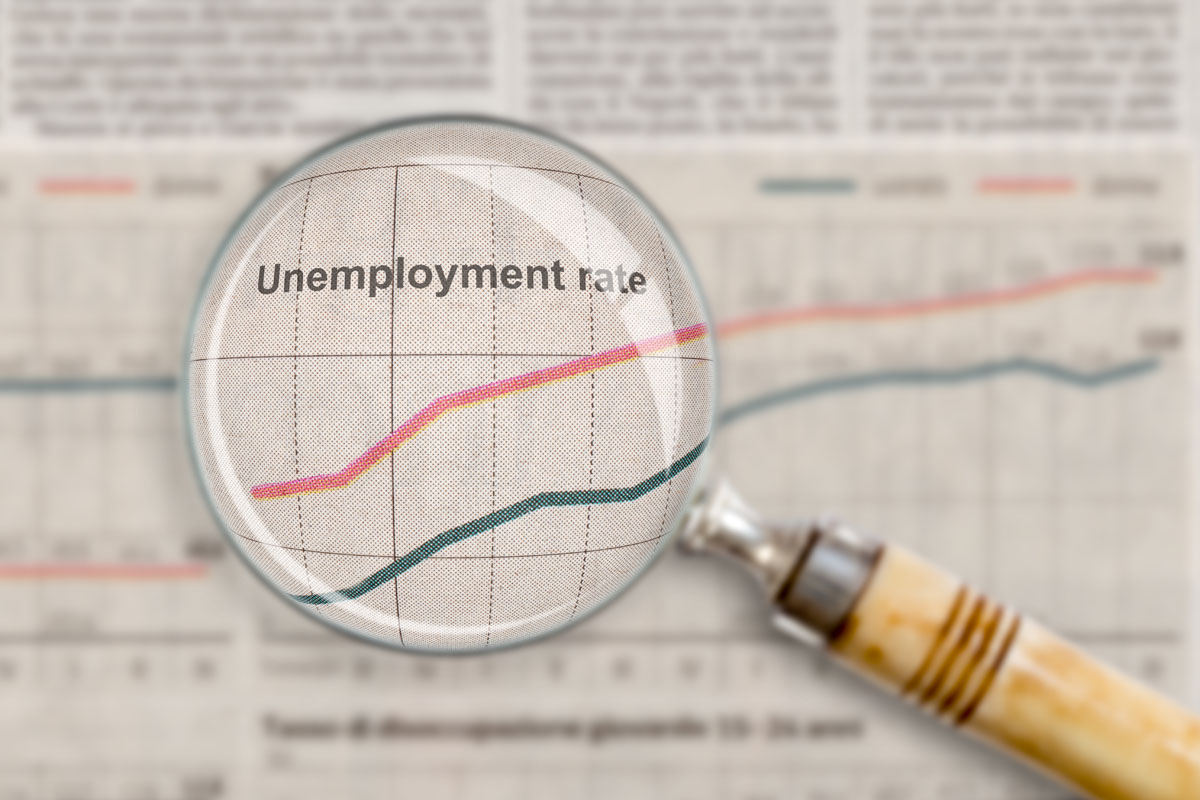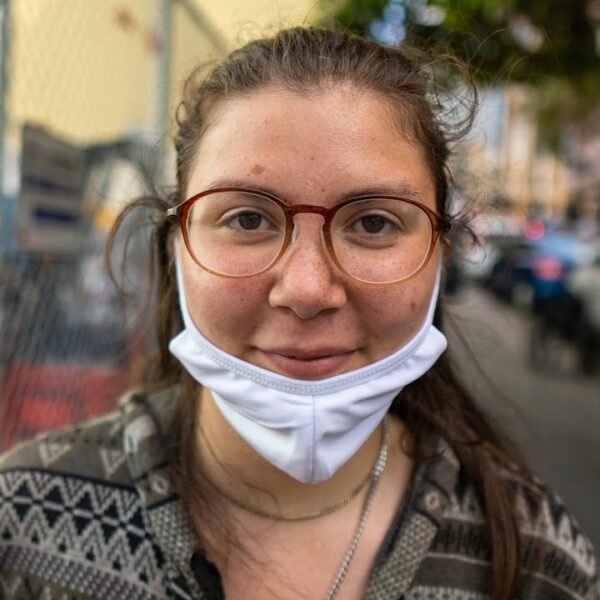Unemployment Rates Surge as Coronavirus Continues to Spread
Worldwide plagues are not new. Scientists have uncovered DNA evidence of plague bacteria in humans dating back nearly 5,000 years. From epidemics to pandemics, from regionally contained to fast-spreading, ancient nations and civilizations have buckled far and wide, populations have plummeted, and world powers have come to sudden, inexplicable halts, all under the weight of plagues.
We are no different than the humans who roamed this planet before us.
We are no less susceptible to similar fates. Plagues have a way of reminding us that no matter how mighty we believe we are, our bodies can be crippled by organisms too small to be viewed without a microscope. And while these organisms bare no prejudice, no reason, no rhyme, the after-effects of global pandemics have a way of magnifying those tiny little holes in our social system, and exposing corporate greed.
As a result, illness will likely spread impartially, making its way through factories and presidential meetings, with zero regard for status, financial, social or otherwise. But death is projected to hit low-income earners harder. Beyond fatality, other ill-effects, such as poverty, homelessness, unemployment, insurance hurdles, debt, malnutrition, and material loss, will also be widespread within impoverished communities. These are the people on the front lines of the disease and of society already. You might recognize them as the store clerks, the waitresses, the nurse aides, the sitters, teachers, chefs and drivers. Without them, the world doesn’t quite go ‘round. The recent standstill is a testament to such.
Labor Inequality on Lockdown
“The future is so scary.”
~Recently laid off Philadelphia waitress, Rebecca Powers
One of the career markets hit hardest in the ’08 recession was the service and hospitality industry. It would appear that just as this industry was making a comeback a new blow incurred that could prove fatal. Will the entire restaurant business die or will it be forever altered? In order to grasp the full picture, I brought that question back home to my 32-year-old sister, Rebecca Powers. She’s a single mother of two who was recently, and rather unexpectedly, laid off from her job as a server in a trending new Philadelphia restaurant called Entrée BYOB.
Like millions of other American workers, she relies almost entirely on tips for her living. She also worked for a small business owner, so the economic hit she’s taken was a double whammy. She never had access to healthcare to begin with, which puts her in a much more vulnerable position amid a public health crisis. The only thing she’s not afraid of, however, is becoming homeless.
“I have enough family to where I know I won’t wind up living on the street,” she sighs. “Even though I know I might lose my apartment.”
When I ask her if she knows that being forced to move in with relatives as the result of eviction is a form of homelessness sometimes referred to as “hidden homelessness” or “doubling up”, she responds with a defeated-sounding “no.”
This is where things get tricky. Many people who are at risk for homelessness as a result of COVID-19 are unaware of the actual definition of homelessness to begin with.
I continue prodding her with questions I know she’d rather not answer. By the end of the awkward conversation, I’ve derived the following information:
- Rebecca was unexpectedly laid off. She referred to the experience as “losing everything overnight”. She hasn’t made a penny since March 14th
- This happened at a time when she had just begun to get ahead of her bills and as such, she had about one month’s worth of bills set aside in her bank account
- That savings is already dwindling
- Her landlord did not wave her rent payment
- She filed for unemployment and it took her a month and a half to acquire a pin number. Not a check. Just a pin number. She has received no information regarding how much money unemployment is willing to pay her or any confirmation that financial compensation will come any time soon. The unemployment office is both overbooked and understaffed. They are not answering questions. In fact, they are not even answering the phone.
- Lots of restaurants are closing, but no restaurants are hiring. For people who only have work experience in the food and hospitality industry, this means there are zero jobs to fit their history of occupational experience. That has never happened before. In Rebecca’s lifetime, she has never witnessed a time when not one single restaurant was hiring.
Low-Wage Workers Who Could Lose Their Jobs and/or Homes
While restaurants are shuttered and stadiums and theaters fall into a state of utter silence, many low-wage workers are at risk of falling far behind the economic curve. Among them are:
- Hotel workers
- Stadium employees
- Food and beverage workers
- Teachers/ educators
- People in real-estate
- Nurse aids
- Writers, journalists, etc.
According to Forbes Magazine, more than 60% of US workers don’t have enough savings to cover a $500 setback. For people living paycheck to paycheck, a month without finances could cause a lifetime of poverty. That is why they have so much on the line. However, high-wage workers are not immune to a scenario of poverty either. Their overflowing bank accounts might not buy them anything other than time.
High-Wage Workers Face Risks as Well
A global shutdown means loss across the board, from Wall Street investors going bankrupt to professional athletes waiting on the sidelines for better times. Let us not forgot those high-wage workers who are at risk of losing their jobs due to becoming infected with COVID-19. This applies to many doctors and surgeons and to many small business owners who have already come into contact with large populations of people in their places of business. While these workers likely have savings, they might not be buying anything other than a little bit of time. Take, for example, the small business owner Rebecca was working for.
“The restaurant was doing so well that he went out and bought another one,” Rebecca said of her former boss. “Now he has two buildings, two rental payments, and no income.”
High-wage workers still have more of a safety net in terms of savings, properties to sell, experience, and often higher levels of education to fall back on. Only time will tell how long those assets will keep them afloat. For now, most workers at-risk for homelessness are the same workers who were already vulnerable to poverty.
Accessing the Government Safety Net: Are We All Just Grasping at Strings?
The government recently passed a $2 trillion relief bill aimed at aiding those adversely affected by the coronavirus pandemic. It is said that the bill includes, among other things, eviction protections, unemployment wage benefits, and a $1,200 per adult check. All of this aid comes right on time, but everyday workers like Rebecca are uncertain about how to access these protections.
“All I know about the relief package is what I’ve seen on the news. I haven’t received a check or anything. My landlord hasn’t informed me of any leniency regarding payments. As far as I know, I still have to make my car payment. The stimulus package sounds like it could help me, but I don’t understand how I’m supposed to access it. Right now, everything’s still up in the air.”
More than 10 million people have applied for unemployment in the past two weeks, and the number continues to rise. Remember to reach out to your local representatives regarding protection from homelessness for those vulnerable to it in the midst of this worldwide pandemic. We cannot afford for homelessness to increase now or ever, particularly when we are all being urged to shelter in place. There is no better time than now to make a place for those who have no shelter.
Photo courtesy of Pixabay













